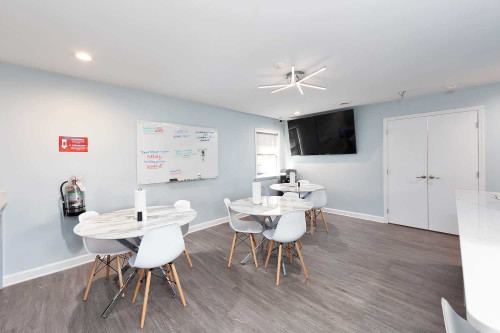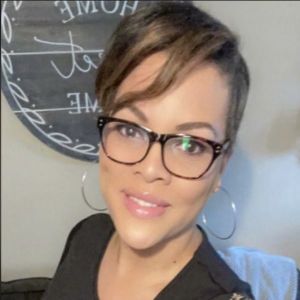






Detox West Tennessee
Treatment Focus
This center primarily treats substance use disorders, helping you stabilize, create relapse-prevention plans, and connect to compassionate support.
Primary Level of Care
Typically the initial stage of treatment for substance use, focusing on medically supervised management of withdrawal symptoms
This provider hasn't verified their profile's information. Are you the owner of this center? Claim your listing to better manage your presence on Recovery.com.
Treatment Focus
This center primarily treats substance use disorders, helping you stabilize, create relapse-prevention plans, and connect to compassionate support.
Primary Level of Care
Typically the initial stage of treatment for substance use, focusing on medically supervised management of withdrawal symptoms
Provider's Policy
Most private insurance companies will cover some of the cost of your detox program. However, sometimes they don’t cover all of the expenses. It would be best to ask your insurance provider how much of the cost they are willing to cover. Policies vary between insurance providers. You can reach out to our identified insurance providers and inquire about their drug and alcohol detox policies.
Detox West Tennessee
Detox West Tennessee
About Detox West Tennessee
Detox West Tennessee provides medically supervised detox for drug and alcohol addiction. Clinical and support staff monitor detox 24/7 for a safe, attentive detox experience. They prescribe medication as needed to ease withdrawal symptoms and support sobriety. Detox West Tennessee has a holistic, trauma-informed care approach and strives to create an accepting environment that recognizes and respects clients as unique individuals.
Personalized, Clinician-Led Care
Detox West Tennessee provides a pre-treatment assessment to tailor treatment to each client, including pregnant women. The assessment, led by their clinicians, reviews addiction history, family history, and current physical and mental health concerns. Clients receive medications as needed for withdrawal symptoms. Detox West Tennessee’s staff includes physicians, nurses, therapists, case managers, and a chef who prepares daily meals.
Holistic Therapies for Whole-Person Healing
Detox West Tennessee prioritizes whole-person healing during the detox phase. They offer holistic therapies, individual counseling, and peer support groups. Their holistic therapies include yoga, detox-specific acupuncture, mindfulness workshops, guided imagery, and nutritional counseling. Clients can access EKG, IV drip services, and specialized wound care. Regular 12-Step meetings take place onsite.
Detox in Safety and Comfort
Detox West Tennessee’s newly renovated center offers luxury amenities and security services for a more comfortable detox experience. They have private and semi-private rooms available with flat-screen TVs in each room. Clients can also enjoy a private outdoor seating space. Detox West Tennessee helps connect clients to further care after detox, and provides continued counseling and access to support groups as clients progress in their journey.
Highlights from the Center
Highlights
These highlights are provided by and paid for by the center.
Insurance Accepted
Holistic Approach
Medically Assisted Detox
12-Step Approach
Center Overview
Treatment Focus
This center primarily treats substance use disorders, helping you stabilize, create relapse-prevention plans, and connect to compassionate support.
CARF Accredited
CARF stands for the Commission on Accreditation of Rehabilitation Facilities. It's an independent, non-profit organization that provides accreditation services for a variety of healthcare services. To be accredited means that the program meets their standards for quality, effectiveness, and person-centered care.

Insurance Accepted
Cash Pay Rates
Estimated Cash Pay Rate
Center pricing can vary based on program and length of stay. Contact the center for more information. Recovery.com strives for price transparency so you can make an informed decision.
Meet Your Care Team

Chris Denney
ADMISSIONS COORDINATOR

Connor Quinn
DIRECTOR OF BUSINESS DEVELOPMENT

Dr. Ron Pruitt
CHIEF MEDICAL OFFICER

Hollie Sanders
NURSE PRACTITIONER

JC Moore
COUNSELOR
LADAC II/QCS

James Roy “Trey” Appleton III
MEDICAL DIRECTOR
MD

William Vick
CASE MANAGER

Darren
CHEF

Joe Moceri
ADMISSIONS COORDINATOR

Rachel Hardin
DIRECTOR OF NURSING

Shenika Bell
ASSISTANT DIRECTOR OF NURSING




Levels of Care





Your Care Options
Specializations
Alcohol
Using alcohol as a coping mechanism, or drinking excessively throughout the week, signals an alcohol use disorder.
Drug Addiction
Drug addiction is the excessive and repetitive use of substances, despite harmful consequences to a person's life, health, and relationships.
Who We Treat
LGBTQ+
Addiction and mental illnesses in the LGBTQ+ community must be treated with an affirming, safe, and relevant approach, which many centers provide.
Men and Women
Men and women attend treatment for addiction in a co-ed setting, going to therapy groups together to share experiences, struggles, and successes.
Approaches
Evidence-Based
A combination of scientifically rooted therapies and treatments make up evidence-based care, defined by their measured and proven results.
Holistic
A non-medicinal, wellness-focused approach that aims to align the mind, body, and spirit for deep and lasting healing.
Individual Treatment
Individual care meets the needs of each patient, using personalized treatment to provide them the most relevant care and greatest chance of success.
Twelve Step
Incorporating spirituality, community, and responsibility, 12-Step philosophies prioritize the guidance of a Higher Power and a continuation of 12-Step practices.
Therapies
1-on-1 Counseling
Patient and therapist meet 1-on-1 to work through difficult emotions and behavioral challenges in a personal, private setting.
Art Therapy
Visual art invites patients to examine the emotions within their work, focusing on the process of creativity and its gentle therapeutic power.
Life Skills
Teaching life skills like cooking, cleaning, clear communication, and even basic math provides a strong foundation for continued recovery.
Massage Therapy
Massage therapy relieves physical and emotional tension, reduces pain, promotes relaxation, and improves emotion regulation.
Medication-Assisted Treatment
Combined with behavioral therapy, prescribed medications can enhance treatment by relieving withdrawal symptoms and focus patients on their recovery.
Music Therapy
Singing, performing, and even listening to music can be therapeutic. Music therapy sessions are facilitated by certified counselors.
Psychoeducation
This method combines treatment with education, teaching patients about different paths toward recovery. This empowers them to make more effective decisions.
Twelve Step Facilitation
12-Step groups offer a framework for addiction recovery. Members commit to a higher power, recognize their issues, and support each other in the healing process.
Substances We Treat
Alcohol
Using alcohol as a coping mechanism, or drinking excessively throughout the week, signals an alcohol use disorder.
Benzodiazepines
Benzodiazepines are prescribed to treat anxiety and sleep issues. They are highly habit forming, and their abuse can cause mood changes and poor judgement.
Cocaine
Cocaine is a stimulant with euphoric effects. Agitation, muscle ticks, psychosis, and heart issues are common symptoms of cocaine abuse.
Drug Addiction
Drug addiction is the excessive and repetitive use of substances, despite harmful consequences to a person's life, health, and relationships.
Heroin
Heroin is a highly addictive and illegal opioid. It can cause insomnia, collapsed veins, heart issues, and additional mental health issues.
Methamphetamine
Methamphetamine, or meth, increases energy, agitation, and paranoia. Long-term use can result in severe physical and mental health issues.
Opioids
Opioids produce pain-relief and euphoria, which can lead to addiction. This class of drugs includes prescribed medication and the illegal drug heroin.
Prescription Drugs
It's possible to abuse any drug, even prescribed ones. If you crave a medication, or regularly take it more than directed, you may have an addiction.
Languages
Care Designed for Your Needs
Personal Amenities
Amenities
Special Considerations
Gender-specific groups
Patients in gender-specific groups gain the opportunity to discuss challenges unique to their gender in a comfortable, safe setting conducive to healing.
Activities
Yoga
Yoga is both a physical and spiritual practice. It includes a flow of movement, breathing techniques, and meditation.






